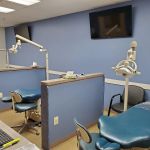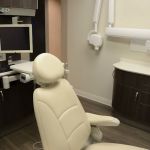How to Choose the Best Toothbrush for Seniors
Oral care becomes even more important as we age, and choosing the right toothbrush for seniors is a crucial step in maintaining good dental hygiene. I’ve seen firsthand how often people overlook this aspect of elder care, assuming that any toothbrush will do. However, as we get older, our needs change. Whether it’s because of arthritis, sensitive gums, or weakened hand strength, seniors often require a toothbrush that can accommodate these challenges while providing effective cleaning. From soft bristles to ergonomic handles, the options available today can make a huge difference in the ease and comfort of brushing.
Having witnessed several seniors struggle with regular toothbrushes, I knew that choosing the right one was key to ensuring they were taking proper care of their teeth. Over time, I’ve come to understand that the right toothbrush not only improves the quality of oral care but also makes brushing a more enjoyable task, especially for those who face physical limitations. Here, I’ll dive into how to choose the best toothbrush for seniors and what to keep in mind when making this important decision.
1. Consider the Type of Brush: Manual or Electric?
When choosing a toothbrush for seniors, one of the first decisions to make is whether to go for a manual toothbrush or an electric one. Both options have their merits, but it ultimately depends on the individual's physical condition and preferences. I remember the first time I saw a senior struggling with a manual toothbrush due to arthritis in their hands—it was clear they needed an alternative. Electric toothbrushes can be a game-changer for many elderly individuals.
Manual Toothbrushes: These are generally more affordable and come in a wide variety of designs, including options with ergonomic handles to improve grip. However, they require more effort and coordination to brush effectively, especially for seniors with limited dexterity or arthritis. If you choose a manual toothbrush, look for one with a large, non-slip handle to ensure a comfortable and secure grip.
Electric Toothbrushes: These are often recommended for seniors, particularly those with arthritis or limited mobility. The automatic brushing action of an electric toothbrush can provide a more thorough clean with less effort. Many models even have built-in timers to ensure that brushing lasts for the recommended two minutes. While electric toothbrushes are more expensive, they can be well worth the investment for their ease of use and effectiveness. I’ve found that many seniors feel more confident using an electric toothbrush as it takes the physical strain out of brushing.
2. Soft Bristles for Sensitive Gums
As we age, our gums become more sensitive and prone to irritation. In fact, many seniors suffer from gum recession or periodontal disease, which makes gentle brushing even more important. I’ve seen firsthand how a senior who’s used to brushing aggressively with a hard-bristled toothbrush can end up causing more harm than good, leading to even more gum irritation or bleeding.
That’s why it’s essential to choose a toothbrush with soft bristles. Soft bristles are gentle on the gums but still effective at removing plaque and food particles. Hard bristles may seem like they would provide a more thorough clean, but they can cause unnecessary abrasion and discomfort. When choosing a toothbrush for a senior, always opt for one with soft or extra-soft bristles. Many modern toothbrushes—both manual and electric—are designed with softer bristles to cater to sensitive gums.
3. Ergonomic Handles for Comfort and Control
One of the most common issues seniors face when brushing their teeth is the difficulty in holding and controlling the toothbrush. Whether it’s due to arthritis, limited hand strength, or tremors, gripping a toothbrush properly can become challenging. I’ve seen how a poorly designed toothbrush can lead to frustration and even skipped brushing sessions, which only contributes to poor oral health.
For seniors, choosing a toothbrush with an ergonomic handle is essential. A toothbrush with a larger, non-slip handle provides better control and a more comfortable grip. Some electric toothbrushes even come with handles that are designed to reduce the strain on the hands and wrists. Additionally, there are toothbrushes with angled heads and handles that make it easier to reach all areas of the mouth without straining the hand.
When selecting a toothbrush, look for one with a handle that suits the senior’s individual needs. Handles that are rubberized or made from soft, textured materials can offer better grip and control. This attention to detail can make brushing much more comfortable and effective.
4. Look for a Timer or Pressure Sensor
Another feature that can be particularly helpful for seniors is a built-in timer or pressure sensor. I can’t tell you how many times I’ve watched a senior brush their teeth for less than the recommended two minutes, simply because they didn’t realize the time had passed. It’s easy to underestimate how long you’ve been brushing, especially when the process feels a bit tedious.
Timer: Many electric toothbrushes come with a built-in timer that ensures users brush for the full two minutes. Some models even break the time into 30-second intervals, prompting the user to move to a different quadrant of their mouth. This can be particularly helpful for seniors who might otherwise brush too quickly and miss spots in their mouths.
Pressure Sensor: Another great feature on modern toothbrushes is a pressure sensor, which alerts the user if they are brushing too hard. Excessive pressure can lead to gum damage and enamel erosion, which can be more problematic for seniors with sensitive teeth. A pressure sensor provides peace of mind, ensuring the senior is brushing at the right pressure for optimal oral health.
5. Consider Toothbrushes with Specialized Features
In addition to the basic features like soft bristles and ergonomic handles, there are other specialized features that may benefit seniors. Some electric toothbrushes come with modes designed for specific needs, such as sensitive mode, gum care mode, or whitening mode. These customizable settings allow for a more personalized brushing experience based on the user’s needs and preferences.
Additional Features: Many modern toothbrushes come with heads that can be replaced, ensuring optimal hygiene. Some toothbrushes are also waterproof, making them easy to clean and maintain. Additionally, certain models feature handles that are designed to be extra lightweight, reducing strain during use.
When selecting a toothbrush, it’s a good idea to think about the senior’s specific needs and any additional features that might make their brushing experience more comfortable or effective. Whether it’s an extra-sensitive mode on an electric toothbrush or a travel case for easy storage, these small details can make a big difference in the user’s experience.
6. Consult Your Dentist for Recommendations
Ultimately, the best toothbrush for a senior will depend on their individual oral health needs and physical abilities. I’ve found that consulting with a dentist or dental hygienist can provide invaluable insights into the right toothbrush for the senior in question. A dentist can assess the condition of the senior’s teeth and gums and recommend the most suitable toothbrush for their needs.
For seniors with specific oral health issues like gum disease or sensitivity, a dentist might recommend a toothbrush with particular features, such as a special brush head or a more gentle brushing mode. Some seniors may even benefit from a recommendation for a specific toothpaste that complements their toothbrush.
By consulting with a dental professional, you can ensure that the senior in your life gets the best care possible, from choosing the right toothbrush to maintaining good overall oral health.
Finding the best toothbrush for seniors doesn’t have to be a daunting task. With the right knowledge and attention to detail, you can select a toothbrush that makes oral care easier and more comfortable. For personalized recommendations and advice, visit Dentistry Toothtruth, where we offer expert guidance on all things related to dental care for seniors.







 Bell Road Family Dentistry - Montgomery4.0 (240 review)
Bell Road Family Dentistry - Montgomery4.0 (240 review) Chesheim Dental Associates4.0 (103 review)
Chesheim Dental Associates4.0 (103 review) Children's Dental Health of Downingtown4.0 (658 review)
Children's Dental Health of Downingtown4.0 (658 review) Lindenhurst Village Dental4.0 (46 review)
Lindenhurst Village Dental4.0 (46 review) Word of Mouth Designs0.0 (0 review)
Word of Mouth Designs0.0 (0 review) Gulch Dental Studio4.0 (597 review)
Gulch Dental Studio4.0 (597 review) The Importance of Oral Health Education During Pregnancy for a Healthy Pregnancy
The Importance of Oral Health Education During Pregnancy for a Healthy Pregnancy Best Tips for Brushing Your Teeth Properly for Healthy Gums: Essential Techniques for Oral Health
Best Tips for Brushing Your Teeth Properly for Healthy Gums: Essential Techniques for Oral Health Why Skipping Dental Checkups Can Lead to Bigger Oral Health Problems
Why Skipping Dental Checkups Can Lead to Bigger Oral Health Problems Advantages of Porcelain Dental Restorations
Advantages of Porcelain Dental Restorations How Can Diabetes Cause Tooth and Gum Problems? Preventing and Managing Oral Health Issues
How Can Diabetes Cause Tooth and Gum Problems? Preventing and Managing Oral Health Issues Healthy Habits for Promoting Good Oral Health and Hygiene: Tips for a Healthy Smile
Healthy Habits for Promoting Good Oral Health and Hygiene: Tips for a Healthy Smile